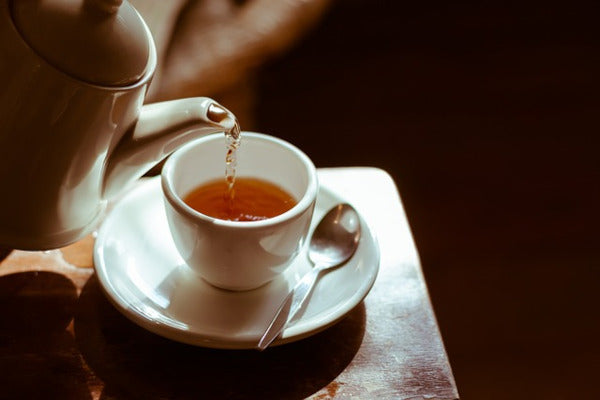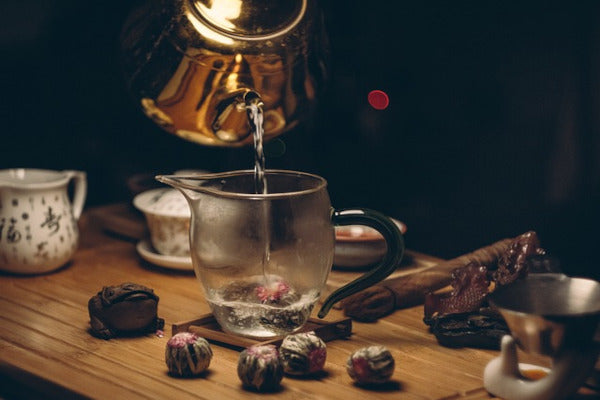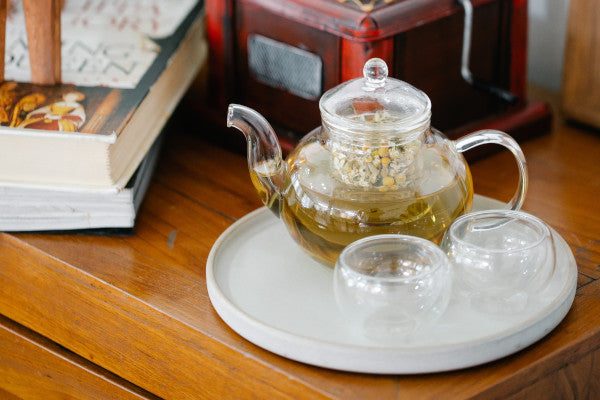Infusions are a powerful alternative for detoxifying, as they help cleanse the body. Ayurvedic medicine places great importance on infusions, due to the powerful power plants have in healing and regulating the body. In this post, you'll learn what Ayurvedic infusions are and who they benefit from.
The Ayurvedic system is very ancient, dating back more than 3,000 years. The term is a combination of two Sanskrit words: ayur, meaning "lifespan," and veda, meaning "truth" or "knowledge." Furthermore, it is studied in India and has only recently been introduced to the West.
What is an Ayurvedic infusion?
Ayurvedic spice infusions are simple and delicious blends of flowers, berries, and fruits, which are infused while the tea is about to come to a boil. These infusions also aim to balance our doshas (vital energies that play an important role in the body's biological and psychological functions).

There are three types of doshas : Vata , Pitta , and Kapha, which are related and help maintain the body's balance. The doshas determine this balance; it can be one of them or a combination of all of them. Also, if you want to know which dosha you are, one trick is to try several Ayurvedic infusions. If you don't feel comfortable with any of them, it won't be because of the taste, it will mean that it is not appropriate for your dosha type, so you should try another variety.
Most used Ayurvedic infusions
For the Ayurvedic system, plants represent the soul of the earth, and they are honored. A wide variety of species and plants are accepted for their positive effects on the doshas . Below is a list of some of the most commonly used plants and species in Ayurvedic philosophy:
Aloe vera. Considered the "Vitality of Youth," it contains digestive properties and facilitates nutrient assimilation. It is a natural stimulant that helps boost vitality.

This plant has the same properties as echinacea, which influences the body's defenses.
It is a plant that is also called the “plant of wisdom” and has calming and memory-stimulating properties.
Not only plants, but also a significant number of species that offer health benefits, especially in relation to digestion. The best known are the following:
- Black pepper. Purifies the digestive system and facilitates nutrient absorption.
- Cloves. Their aroma gives a special touch to infusions. Among their benefits are: relieving stomach discomfort and having anti-inflammatory and antiseptic properties.
- Turmeric. It aids in the digestive process and has soothing properties.
- Cardomon. It influences digestive processes and reduces bloating.
- Also the Ayurvedic infusion helpsbalance the Pitta dosha.
How to prepare Ayurvedic infusions
There are two types of Ayurvedic infusions: hima (cold infusion) and Phanta (hot infusion).
Cold Ayurvedic Infusion
To prepare it, you need a part of the plant that must be soaked for 8 hours the night before. Then, the next morning, strain it and it's ready to drink. Furthermore, the plants used for cold Ayurvedic infusions are those with calming and refreshing effects. Among the most common actions are: reducing thirst, relieving the burning sensation, hydrating, and providing benefits for the heart.

With the Mantha version, you can prepare cold infusions. To do this, you must soak the plant overnight; this will achieve a maceration effect. The ratio used is 1:4. Then, the next morning, strain it and drink it.
Hot Ayurvedic infusion
To prepare it, you need one part of the plant mixed with four parts boiling water. Let it steep for a few minutes, strain it, and it's ready to drink.
What uses are given to Ayurvedic infusions?
The first thing that comes to mind when we think about its use is Ayurvedic detox and cleansing infusions. However, this is not true. The effects will depend on the plant used in the infusion. It is also an infusion to reduce heaviness . Along with the rest of the substances, the plants act according to certain parameters: Rasa (flavor); Veerya (potency); Vipaka (post-digestive effect); and Guna (attributes).
Based on the above, we can say that infusions can have a wide range of effects; everything depends on how the aforementioned parameters are combined. These effects can be relaxing, stabilizing, energizing, digestive, purifying, etc.
What is the Ayurvedic diet?
Any health benefit we want to provide to our body must be accompanied by an Ayurvedic diet. To maintain good health or to combat any illness, it is necessary to make some dietary adjustments and adopt healthy habits. Complying with any treatment should not be limited solely to consuming Ayurvedic medicines; an Ayurvedic diet will be necessary to enhance the results and thus improve the long-term prognosis.
The Ayurvedic diet consists of choosing the right foods and eating them in appropriate quantities, applying the principles of Ayurvedic medicine. According to the philosophy of this medicine, every substance is made up of five elements: air, fire, ether, water, and earth. The various combinations that arise from these give substances certain characteristics or qualities.
Furthermore, foods are also made up of these elements, just like our bodies. Among those recommended in an Ayurvedic diet are: rice, wheat, barley, green leafy vegetables; desert animal meats, grapes, green soybeans, ghee, rainwater, milk, pomegranate, honey, haritaki (Terminalia chebula), radish, etc.
Our company is a supplier of Ayurvedic tea , an infusion that combines the healing properties of herbs and spices used in traditional Indian medicine. Our tea is an excellent choice for those seeking a healthy, natural beverage to improve their physical and mental well-being. We offer a wide variety of Ayurvedic tea blends, each designed to meet the individual needs and tastes of our customers. Discover the benefits of Ayurvedic tea with us today!






